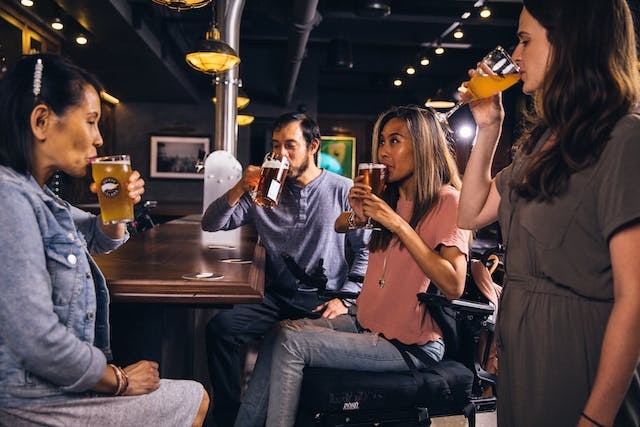
Sometimes, you'll get an invitation to hang out with friends while still under medication and may be tempted to drink a glass of wine or any liquor. However, you shouldn't mix your medication with any alcohol.
Alcohol and Medicines Interact
Mixing alcohol with prescription or over-the-counter medications might cause the drug's effects to intensify or worsen the alcohol's harmful effects. Additionally, it occasionally may cause brand-new adverse effects.
Your brain's chemical composition keeps an exact balance between inhibition and stimulation. Seizures can result from excessive excitement. You will suffer from drowsiness and depression if you exhibit excessive inhibition.
It is believed that alcohol increases the brain's level of inhibition. Those of you who have had a few alcoholic beverages may recognize this as a feeling of relaxation and a lessening of social inhibitions.
Alcohol and medication interactions may result in distinct or stronger consequences. Alcohol may affect how a medication functions in the body or how well it is absorbed from the stomach. If the adverse effects of your medication leave you feeling drunk, they may worsen.
Not every adverse impact has to have an alcohol-like taste. For example, combining alcohol and Ritalin can intensify the medication's cardiac effects, raising your heart rate and the risks of a heart attack. Alcohol and ibuprofen, when consumed together, may increase the risk of stomach aches and stomach bleeds.
Alcohol can accelerate the breakdown of some medications, including Ritalin, cannabis, opioids, and seizures. This may reduce the medication's effectiveness.
Additionally, alcohol may change the way a medication is metabolized, possibly producing hazardous compounds that could seriously harm the liver. There is a specific issue with paracetamol.
When alcohol and medications are combined, the results can be lethal. Alcohol and brain-damaging medications together can make it harder to drive or operate heavy machinery and increase the risk of a major accident.
ALSO READ : Is a Glass of Wine Before Bed Relaxing? Expert Says Alcohol Disrupts Natural Sleep Cycle
Some People Are at Greater Risk When Mixing Alcohol and Medication
In general, mixing alcohol and medicines is dangerous. Thus, it is discouraged to do so. However, some people are more at risk from harmful alcohol-medication interactions.
The danger of negative interactions between alcohol and medications is higher in the elderly population because the body's ability to break down alcohol is slowed down with age. So, alcohol stays in older people's bloodstream for longer.
Additionally, the elders are more prone to take prescriptions that hurt alcohol. In fact, they sometimes need to take many medications that have this effect.
Additionally, women are more likely than men to experience issues. Even when two people consume the same amount of alcohol, a woman's blood alcohol content usually rises more than a man's. This is because women's bodies typically contain less water than men's.
A woman's body contains a greater concentration of alcohol than a man's because alcohol interacts with bodily water. Women are, therefore, more vulnerable to liver impairment and other alcohol-related organ damage.
Also, timing is very important because even if alcohol and medications are not consumed at the same time, they may nevertheless interact negatively.
RELATED ARTICLE : Blame It On Beer! Alcoholic Chemicals Breaking Down in the Brain Causes Drunken Behavior
Check out more news and information on MEDICINE & HEALTH in Science Times.
© 2025 ScienceTimes.com All rights reserved. Do not reproduce without permission. The window to the world of Science Times.










